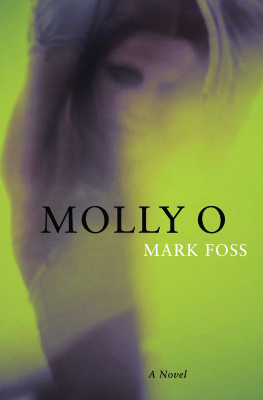Shhh … silence is golden, so they say. No one puts this to the test like Candy, the coquettish auctioneer’s daughter in Mark Foss’s second novel – a darkly humorous tale of sibling rivalry and devotion. Mysteriously mute since birth, the baby of the family needn’t utter a word to seduce an audience. By the tender age of ten, she’s already daddy’s favourite assistant onstage, her come-hither body language and vintage costumes gaining glowing reviews from auction-goers while arousing envy within her family.
Her competitive elder brothers, LJ and Hoss, both dream of succeeding their father, “the best damn auctioneer in the country.” But Joseph – a voice to be reckoned with – is a tough act to follow. Channelling “the Tone,” he dazzles bidders like a televangelist, his honeyed verbalizations “tap[ping] into every crevice of craving.” He and Candy are like opposite, yet complementary, sides of a lucky coin, her silent style sweetening his quasi-mystical marketing pitch. For years, they shine brighter than anything else in their small Ontario town – until Candy disappears, that is, and Joseph loses his silver tongue to throat cancer.
The story is narrated by LJ (Little Joseph), the self-effacing middle child, who, as an adult, studies film at university in Ottawa, later teaching it in Montreal. Grief, jealousy, and abandonment are running themes and, in LJ’s eyes, Hoss deals by not dealing, escaping through pot and new-age platitudes. But LJ’s own coping mechanisms are equally steeped in denial. His obsessive fantasies of finding Candy drive the narrative forward, her apparent indifference exacerbating his craving for approval.

Molly O
Mark Foss
Cormorant Books
$20.00
paper
288pp
9781770864306
“Anyone so immersed in deconstructionist erotic cinema would not tell a story from front to back,” says LJ of Candy, mirroring his imagined sister through his own non-linear narration. Ottawa-born Foss, who, like his protagonist, studied film (at Carleton University) before moving to Montreal, cleverly rocks the reader between present, past, and future, leaving us tipsy. “When does the present become the past or does it sometimes go the other way around?” LJ asks.
Dialogue in the novel is sometimes elliptical, making it hard to decipher who’s speaking, but Foss’s prose flows smoothly otherwise, captivating the reader with cinematic sensibility. The author keeps us entertained with humorous wordplay and tinges of absurdity as LJ and Hoss butt heads over their father’s funeral plans. Repressed family friction rises, begging to be healed, like the smoke from Hoss’s sagebrush.
Reading Molly O, we’re reminded that power struggles between romantic partners are often rooted in familial relationships. It is through his standoffish sister that LJ first learns the pains of being rejected by a woman and consequently struggles to establish intimacy with girlfriends. We wonder: is Candy traumatized, dead – or is her absenteeism simply a control tactic by which she hopes, paradoxically, to have the final word? Her general aloofness is unsettling to those closest to her, exposing the sometimes insidious nature of withdrawal. While silence may often be golden, like fool’s gold it may not always be what it seems. mRb






0 Comments